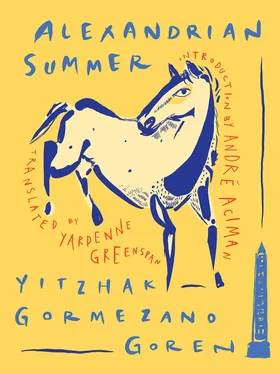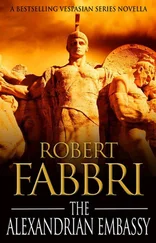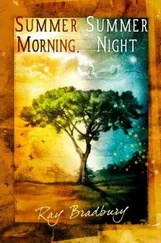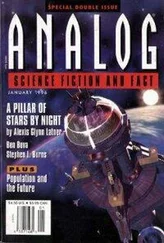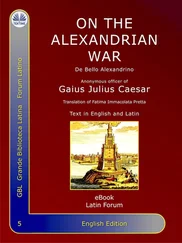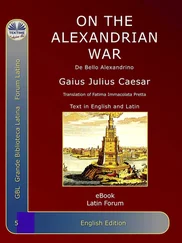Joseph couldn’t explain such a simple and obvious thing: David wasn’t David and Tal’ooni wasn’t Tal’ooni. Neither of them was independent or autonomous. They were pawns in the hands of much mightier powers, fighting at all times and places and ways. Tomorrow they would battle on the track, and the winner would bring honor to his kin. Victory tomorrow would be decisive, final and complete. When he told the rabbi, “God is being put to the test,” he had already gone too far. Such things need not be stated explicitly. Joseph felt a secret fear, one he’d never known before. His limbs shook, he could not subdue the storm raging inside him and he grew more and more tired. How could the rabbi not see that this was urgent? That the God of the Jews had to win? That if He didn’t … what would he himself do when faced with Him? With Allah the terrible, Allah who wreaks vengeance upon His enemies? It took place thirty years ago. It took place because of a woman. A woman he no longer loved. Love had faded, the deed remained. The deed that could not be repented. The day of judgment remained.
Hakham Ferrera pitied him. What was left of that energetic young man, that quiet, self-accepting man? He wanted to help but didn’t know how. Saying a special prayer at the synagogue for a man to win a race? And what if some of the congregation members had placed bets on other horses? He’d be making a spectacle of himself and the synagogue. He and his institution were not properly respected these days anyhow, as in the days of his father. He himself was nothing but a sort of clown, an entertainer. He tried his best to please them all, and wasn’t brave enough even to reprimand the women playing cards on Saturday in the adjacent room.
“I’ll pay you,” Joseph said impatiently.
The very same Hamdi-Ali he was thirty years ago! His solution for anything. “I’ll pay!”
He wanted to issue a rebuke, but instead found himself speaking sweetly through the dust of flattery, “You’ve been donating generously to the community for thirty years …”
“Not to the community, I’ll pay you!” Joseph said. “Straight into your pocket.”
“Me?” Hakham Ferrera stood up. “Do you realize you’re insulting me?”
Joseph wanted to slap the small, self-righteous man. He recalled another occasion, awhile ago, in that club, when he had rejected temptation. How much time had gone by? How many worlds had crumbled! Back then he could still look proudly in everyone’s eyes, but today? What was he trying to do? Bribe a rabbi? Corrupt the entire world? He wanted to fall to his knees and beg for forgiveness. Instead he stood up and disappeared word-lessly into the darkness of the hall. In his move from the glaring brightness of the balcony to the darkness of the house he couldn’t see a thing, and accidentally stepped on the toy train on the rug and trampled several cars.
The next day, looking back, the rabbi said in a trembling voice, “Perhaps I could have helped him. Perhaps. But I didn’t.”
42. THE STREET LAMPLIGHTER
The street lamplighter who rides through Rue Delta at dusk, kindling the gas lamps with his long lance topped by a small torch, returns once more along the same route late at night, while the street is deep in slumber. They say that with each lamp he extinguishes, one star goes out in the sky. When he completes his ride along the sidewalks and moves away down the boardwalk toward the east, his silhouette fades against the half-disc of the rising sun.
Just like that, every day, every week, every month, in all weather, for many years. One day electric lamps would be installed on Rue Delta, and then the lamplighter would disappear from the landscape, fading along with our forgotten childhood, which grows distant with every passing day.
The lamplighter saw a man lying on the sidewalk. A man sleeping on the sidewalk — not an uncommon sight in a Mediterranean city in the summer. The lamplighter shook his head and picked up whistling the Neapolitan tune that accompanied him through his route. He was about to continue to the next lamp when he noted the man’s clothing. Fine, elegant European clothing.
It’s a gentleman, he thought with surprise, not a beggar.
A European man sleeping on the street was not a sight frequently encountered by the lamplighter. During the war, British and Australian soldiers were everywhere in Alexandria. They got drunk at night and often couldn’t find their way back to the barracks and fell asleep on the sidewalk until the sea breeze blew away the webs of intoxication from their eyes, or military police came to drag them away. “This signore must have gotten drunk too,” the lamplighter thought. He wanted to get off his bike and check. Off his bike? Only at the end of the route! He was too lazy to come down. Instead, he poked the man with his long lance. The man did not budge. Eventually the lamplighter muttered an Italian curse and stepped onto the ground. He turned the man over on his back. There was a smile on his face. “Well sure, he’s drunk.” He leaned down and put his nose to the man’s mouth, to check for the smell of alcohol, but couldn’t detect a thing. It seemed the man wasn’t breathing at all. Only then did he think that the man could be dead.
“A heart attack?” the Italian asked himself. “A man walks down the street and then … basta! Finito! ” He began rummaging through the man’s pockets to find his identification, but stopped. What if somebody walked by and thought he’d killed the old man to rob him? You try to be a good Christian and help another human being, even a dead one, and what do you get? Nothing but trouble!
He jumped back on his bicycle and rode away. He stopped to extinguish the next lamp and look back. A dark bundle lay beneath the previous lamp. The sidewalk was a little lighter back there.
When he reached the third lamp, the bundle had faded, swallowed into the blue grayness of the sidewalk. By the time he headed for the fourth lamp he’d forgotten the matter and returned to whistling that Neapolitan tune: “ O dolce Napoli, o sole beato… ”
And indeed, the sun’s rays filtered down among the buildings along the street, slowly scattering golden dust on the face of the deceased. For a moment, it mischievously played upon the smile on the bluing lips. Joseph Hamdi-Ali had found peace.
43. OO HALASNA! AND THAT’S THAT!
Until the results of the autopsy were known, Emilie told whoever would listen that her husband had a heart of steel, that he never complained of pain, and that she couldn’t understand how he, of all people, ended up having a heart attack on the sidewalk in the middle of the night.
The autopsy threw everything into upheaval. The doctors concluded that Joseph Hamdi-Ali fell onto the sidewalk from a height.
“Fell or jumped?”
It’s difficult to recall who asked this question first. At any rate, in the next day’s papers, the possibility of suicide was stated instead as fact.
Hakham Ferrera visited the widow and tried to console her as best he could. There were other esteemed visitors there, among them the Arab officer Nawas, friend of Robby’s family. The rabbi sang Joseph’s praises, calling him a better Jew than many who were born into the faith (suddenly everyone spoke freely of Joseph’s conversion!), sighed and said that the community’s poor would surely feel the absence of Hamdi-Ali. At this assertion, David quickly volunteered to continue in his father’s footsteps and donate two pounds a month. Rabbi Ferrera went on and on but never mentioned the burial. How could he explain such a thing to the family? But then he couldn’t ignore the feelings of an entire community either. Jewish law is unequivocal on this matter — not the matter of conversion, God forbid, but the matter of suicide.
Читать дальше
